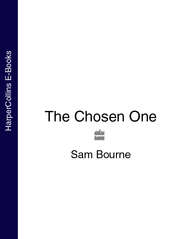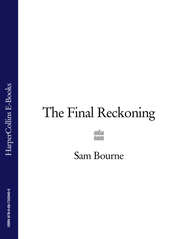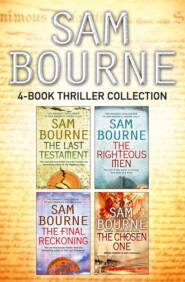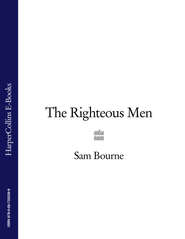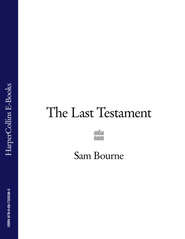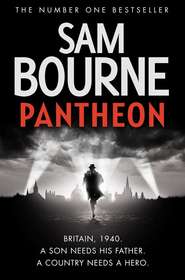По всем вопросам обращайтесь на: info@litportal.ru
(©) 2003-2024.
✖
To Kill the President: The most explosive thriller of the year
Автор
Год написания книги
2019
Настройки чтения
Размер шрифта
Высота строк
Поля
Ordinarily, Bob Kassian dreaded occasions like these. He would do his best to arrive late and leave early which, in his role as Chief of Staff, was not just possible but expected. Of course he was too busy to spend more than a few precious minutes at a reception, hobnobbing with diplomats and selected ‘business leaders’. (In the previous era, a party like this would also have included a few journalists and academics, specialists in the relevant region, but McNamara had decreed that he’d had ‘enough of experts’ and so that custom had been terminated. Kassian disagreed but said nothing: pick your battles.) If anything, it would look suspiciously low energy and low status if the Chief of Staff were present there too long. Official Washington would be disappointed.
But tonight was different. Not the event itself: a reception in the East Room for the King of Saudi Arabia was as unappetizing as any other. But it provided a perfect opportunity to talk, discreetly and unheard, with the Secretary of Defense. If they had met in Kassian’s office in the White House, it would have looked too deliberate: a meeting, rather than a chat. Even more so if Kassian had made a special journey to the Pentagon. But grabbing a few moments to talk at a cocktail party? That was perfectly natural. Especially during a nuclear crisis, when discussion between the key players was around the clock. If someone spotted the two of them in earnest conversation, the most damaging interpretation would be that they were cementing an alliance that excluded the National Security Advisor: in other words a standard Washington turf war. No one would imagine they were plotting the assassination of the President of the United States. Hiding in plain sight: a tactic that had always served them both so well.
They now picked up where they had left off earlier that day. Once they had made the core decision, establishing the objective, they had moved swiftly to method. They talked first about what he, Kassian, referred to as ‘direct’ options.
Was there a way the two of them could kill the President themselves? The advantages were obvious. They would not be reliant on the discretion, or resolve, of anyone but each other. They could move fast, at a moment solely of their choosing. But could it be done?
Could they get themselves alone in a room with him, perhaps with a syringe containing a drug that might simulate a heart attack? Where would they source such a drug, without arousing suspicion? Once administered, would it leave a trace?
They were sure they could find answers to those questions. But as they went through the various scenarios, they found themselves running into the same brick walls. There was the simple fact that the President was almost never alone. On the contrary, he was the most closely defended human being on the planet. The Secret Service employed 6,750 people for the sole task of keeping him safe. There were agents in the Residence, agents in the office, agents wherever he travelled. Even if he were to demand a private, one-to-one chat with either his Chief of Staff or his Defense Secretary there was always a chance someone could join them at any moment. The one person who might have had a reason to be alone with the President, to demand complete privacy, with the time and space to do what needed to be done, was his personal physician. But that man was dead.
Even if they had found a way around that particular obstacle, and neither Kassian nor Bruton could easily see it, they’d run into the other, more serious hurdle: the fact that any one of the ‘direct’ options would make them immediate suspects. Had, say, Jim emerged from a private meeting in the Oval Office, only for the President to be found dead a few minutes later, he would be the first one accused. Yes, they might be able to engineer a delay to serve as an alibi, but if the death were eventually exposed as murder rather than the result of natural causes – and any post-mortem would be extremely thorough – then the automatic assumption would be that this had been an inside job. It might not be either one of them who was identified as the killer, but there would be no doubting that the President had been murdered by someone with proximity to power.
Neither needed to spell out what was obvious to the pair of them: that the personal consequences were not the issue here. Their fear was not that one or both of them might face justice and be made to pay for the crime of a presidential assassination. That was not why they needed to avoid any culpability.
‘If the finger pointed at you, Jim, can you even imagine it?’ Kassian had said. ‘The Secretary of Defense? It would be a military coup.’
Plenty of people, he argued, including many millions who couldn’t stand the President, would nevertheless be appalled at the brutality of such an act and its apparent contempt for democracy and the Constitution. Given the divisions that had been exposed in the election, and the loathing this President had aroused since, they both believed such an outcome could split the country in two. You could imagine it: the newspapers, the cities and coasts, much of the intelligence community in one camp; the rural counties, law enforcement and the border agencies in the other. Each side with its own political party, its own sympathetic TV networks, its own colours: a civil war of red versus blue.
America, they agreed, had always had the potential to do that again; the most lethal conflict the country had ever fought was against itself. An act of murder by the head of the US military would be the spark to relight the fire.
This was why it could not be either one of them who wielded the knife directly. That they would have the physical courage to do it, and damn the consequences – even if that meant risking their own life and liberty – neither doubted. The focus of their conversation in this crowded room, as they waited for the desert king to enter, was not saving their own skins, but saving the republic.
A man in a very expensive suit and with a head of thick, dark hair was hovering, waiting to introduce himself. Bruton turned and offered a handshake. ‘Good to see you,’ he said: the default Washington formulation, delicately insuring yourself against the possibility you had met before. Only a DC rookie ever made the mistake of saying, ‘Nice to meet you.’
The man turned out to be the Ambassador of Egypt, delighted to get a few moments with the Secretary of Defense. He mentioned something about an upcoming visit of his president and Bruton agreed that he would be delighted to meet to discuss further co-operation between their two countries, remembering to add, just in time, that of course he would consult with colleagues too. No need to piss off State.
The ambassador offered a graceful bow of the head and withdrew. They were bound to get interrupted again. They didn’t have much time.
‘So if not us, who?’ Bruton said by way of resumption. Then, without waiting for an answer, he offered one of his own. ‘You know, Bob, we’re not alone on this. There are senior people who feel the same way we do: at Langley, throughout the military, hell, even in the Secret Service. I could put together a group in a heartbeat, no doubt in my mind. Good men, all of them.’
‘I know you could, Jim. But it’s just too risky.’
‘Not if we pick the right people.’
‘It just takes one, Jim.’ He said the words through closed lips, lowering the volume yet further. ‘One person who agrees with us that the man is out of controlbut thinks this is a step too far. Who reckons our plan would, you know, violate the Constitution.’
‘All right, so they don’t join.’
‘And then what? They won’t just shake your hand, say, “Sorry, Jim, can’t be with you on this one” and wish you the best of luck. They’ll feel duty bound to tell the President. How could they do anything else?’
‘All right.’
‘It will only take one to feel that way. Just one.’ Kassian paused. ‘You gotta remember, Jim, none of them went through what we went through yesterday.’
There was a silence between them as they imagined trying to explain it to someone else, to convey what they had witnessed: an American President who was ready – more than ready, determined – to give the order that might well have destroyed all human life, or at least made life on earth not worth living.
‘So it’s just us,’ Bruton said finally. ‘Not for the first time.’
‘And yet it can’t be just us,’ said Kassian. ‘That’s our problem. For the country’s sake, it needs to look like it has nothing to do with us. It has to be a public act, by some random outsider.’
‘Lee Harvey Oswald.’
‘John Wilkes Booth.’
Bruton nodded. ‘That’s some circle we have to square.’
‘Yes, Jim, it is. And we have next to no time to square it.’
12 (#ulink_55f0dd41-271c-51cf-9f55-3e996416052e)
Chevy Chase, Maryland, Tuesday, 6.45pm
Maggie had witnessed this ritual more than once, but the intensity of it struck her with as much power now as if it were the first time.
The front door was open, a crowd of people spilling out onto the stoop. Maggie had to force her way through, just as she’d done once in Jerusalem and – she recalled with melancholy – not so many years ago, here in Washington, DC. No one stopped her, no one asked who she was. This was a house of mourning and anyone who turned up was assumed to be grieving the dead.
She pushed her way into the main living room, which was even more packed than the hallway. She could have been on a commuter train; she could barely move her arms. She counted at least a dozen White House colleagues, including several men whose faces were rendered unfamiliar by the addition of skull-caps.
A man she took to be a rabbi stood at the front, leading the room in Hebrew prayers. Some spiritedly joined in the ancient tunes, some mumbled along, others stood in respectful silence. All stood as if under a heavy cloak of grief. Several wore expressions that were desperate.
She scanned the room. The full range of ages. Plenty who were obviously Dr Frankel’s contemporaries: men she guessed were fellow medics, as well as some she’d have marked down as lawyers or accountants. But there were also scores of people her own age too: friends of the Frankel children, no doubt.
On two of the walls, there were mirrors covered by sheets. It came back to her. That too was a Jewish custom. She remembered it being explained to her in Jerusalem: no scope for vanity or attention to the self when all focus must be on the dead.
But on every other available inch of wall-space, and on the shelves jostling with books and ornaments – including an eight-branched candelabrum, a silver goblet and a pair of antique candlesticks – were family photographs. Dozens of them. Pictures of kids on beaches, now and thirty years ago; graduation photos; black-and-white portraits of turn-of-the-century Americans, their heads held high in that immigrant pose of aspiring formality.
On the shelf nearest her, something caught Maggie’s eye. Printed on white card, in a stylish typeface, was an invitation.
Jeffrey and Helen Frankel along with Philip and Miriam Stern invite you to the wedding of their children, Sheryl and Mark …
No name was printed in the space just below. Maggie squinted to make out the date. A summer wedding, just six weeks from now.
It was only circumstantial, nothing you’d present in a court of law. But it felt obvious that Jeffrey Frankel was a committed family man, surrounded by people he loved and who loved him, with plans for the immediate future. Maggie had known a couple of people with suicidal depression. But that’s not what she was seeing here.
Now the rabbi was speaking in English. ‘As for man, his days are as grass. As a flower of the field, so he flourishes …’
There was more Hebrew, a eulogy from one of the dead man’s teenage grandchildren, a precociously well-spoken girl whose lower lip began to wobble as she reached the final paragraph of her written speech, and finally an instruction from the rabbi for guests to form a line so that they could give their good wishes to the bereaved. This was the ritual Maggie remembered. Indeed, it was what she was here for.
She was about to take her place in the queue, when a former White House colleague appeared at her side, bending down to kiss her on the cheek, simultaneously squeezing her shoulder: a gesture of mourners’ solidarity. It was Ben Jackson, formerly of the NSC; he’d been pretty junior when she was on the foreign policy team, even though they were around the same age, but he’d worked his way up in the last administration, leaving weeks after the new President was elected.
‘I didn’t see you at the funeral,’ he began but before she’d had a chance to reply, he said, ‘What an awful business. How’s it been there?’ He didn’t need to say what he meant by ‘there’.
‘Actually, I’ve barely been in the office today. But people will be taking this pretty badly, I’m sure.’
‘And what about you, Maggie? How’s it been for you these last few months?’
She did her best not to bristle, though she suspected her shoulders had tightened. Had she heard smugness in that inquiry? Or at the very least an implied judgement? I cannot believe you work for that evil man.






